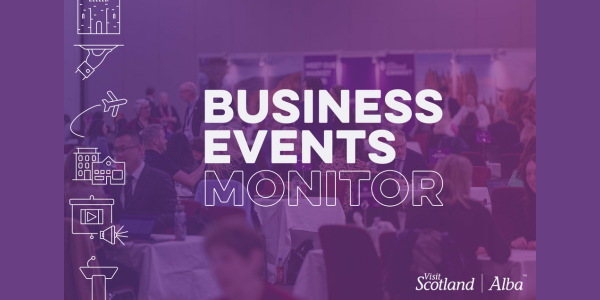
THIS was to be the year of eternal optimism. It was to be the year when society began to get back to normal and the year when, crucially for the events sector, we would see the return of crowds and large gatherings thanks to the unprecedented pace of the vaccine rollout.
Barely a month in and that optimism has taken a beating thanks to new variants and a continued global battle with coronavirus. There is a very real recognition now that the summer of 2021 will not see business as usual for the events and festivals sector in Scotland as was once hoped.
Being pragmatic, it’s highly unlikely we’ll see venues packed to the rafters at the Fringe or crowds filling our stadia for a summer of sport. Our sector is becoming increasingly resigned to this reality. Globally, the Olympics in Tokyo are under threat and we’ve recently seen the cancellation of Glastonbury, so Scotland is not alone in these challenges.
However, such is the determination and ingenuity of our industry, I do believe we will see a summer of sorts for events in Scotland. It won’t be a summer of capacity crowds, but it will be vitally important for Scotland’s health and wellbeing as it progresses through its pandemic recovery with events deep-rooted into the social fabric of Scotland.
The ongoing work of the Event Industry Advisory Group in collaboration with clinicians, public health officials and the Scottish Government to develop a route map back for events will be pivotal to a phased and pragmatic return, affording event organisers some clarity and timelines about what may be permitted.
The reality is, however, that the staging of events at any level of reduced capacity is not sustainable, even as a short-term measure. Not only are they not commercially viable with reduced capacities and physical distancing, but they also lose some of their spark and lustre. After all, it’s that shared experience with family, friends and even complete strangers that draws many of us to attend an event.
May to October is traditionally the principal trading period for events and with the opportunity for a business-as-usual summer for our events sector and supply chain rapidly diminishing, these highly-skilled businesses now face the prospect of two-and-a-half years without income, even with a curtailed 2021 programme.
For many, there is the prospect that their businesses will not survive to see the full rollout of the vaccine. In the short term it is vital to ensure pivotal event sector expertise still exists to reignite the industry in the future. That’s why, hand in hand with a route map for the phased return of events, ongoing financial support for the sector will be crucial.
The recent announcement of an additional £13 million support package for the industry, including the Pivotal Events Business Fund and the Event Industry Support fund both being administered by VisitScotland, will help but it still means tough times ahead for the coming months and a requirement for longer-term support.
In addition to the immediate fight for survival, many other questions remain for event organisers. Will there be a need for vaccine passports? How will the vaccine be rolled out in other countries to support the return of our major international events? Will masks and sanitisation stations still be required? Will staggered access and egress need to be maintained? How can events get insurance?
While continually changing circumstances and the gathering of new evidence often make it difficult to look beyond the here and now, these are questions that need answered.
Here, the pandemic has not blunted our drive and determination for Scotland to be the “Perfect Stage” for events – and our future line-up of events is world class.
Changing consumer behaviour will open up new opportunities related to environment, travel and sustainability while the pandemic has also coincided with global movements on equality and diversity across society. I hope and expect our post-Covid world to be a better place to live, work and travel.
Our new events sector can be reflective of that. Not only is it worth more than £6 billion to the economy, but it is also a significant contributor to our health and wellbeing as a society.
After a devastating 2020 and an increasingly challenging outlook for 2021, we should not lose sight of the fact that with the right planning and support, capacity crowds and sell-out events will eventually return, as will Scotland’s reputation on the world stage. Until then, a cohesive and realistic approach is required.
Paul Bush is Director of Events at VisitScotland
Source: The Herald

![Indiana Jones and Stella: Shining a spotlight on Scotland's booming film industry VisitScotland_(600×300)[1]](https://eventsbase.co.uk/wp-content/uploads/2023/08/VisitScotland_600x3001.png)
![The Reeling set for epic 2024 return The_Reeling_(600×300)[1]](https://eventsbase.co.uk/wp-content/uploads/2023/11/The_Reeling_600x3001.png)

